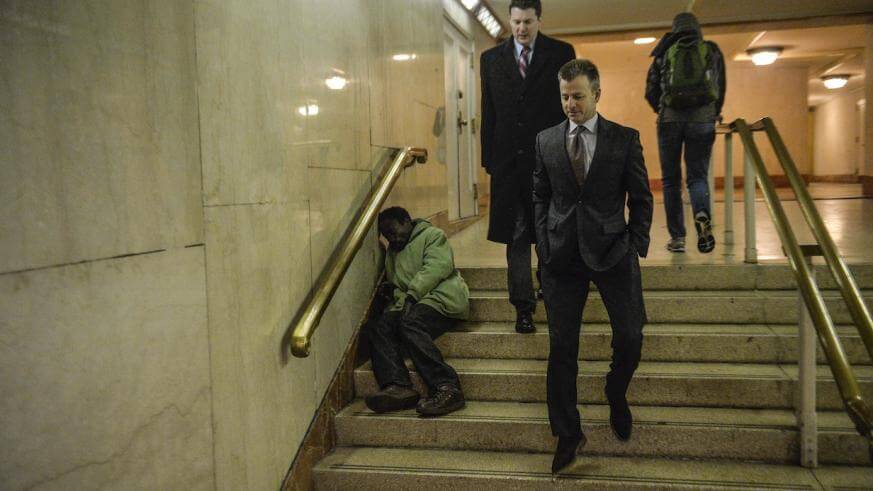In winter of 2015, advocates for the homeless from Project HOME had to fight to keep open the “Hub of Hope,” a one-stop services center in Suburban Station located inside a tiny storefront space and owned by a private landlord.
But now a newer, permanent Hub of Hope is in the pipeline, set to open in January 2018. And this Hub will look a little different.
“We’re going into something that is almost 75 times bigger, an 11,000 square-foot facility,” said SEPTA assistant general manager Fran Kelley. “We want people to be treated with dignity and respect.”
You’d think SEPTA might be busy enough running the region’s transit. But the subterranean concourse of SEPTA Suburban Station in Center City is a destination for homeless citizens escaping the winter cold. So, they decided to do something about it.
“Last winter, it was plainly obvious that we had a significant increase in the homeless population at Suburban Station,” Kelley acknowledged. “We heard it from our customers, we heard it from everybody. … So [SEPTA general manager] Jeff Knueppel and the city got to work to do something.”
City government, Council President Darrell Clarke, Project HOME and SEPTA all joined forces to make the new hub a reality, Kelley said.
Liz Hersh, director of the city’s office of homeless services, noted that the Hub “is a stepping stone. It’s not the cure.” But Hersh praised SEPTA for their efforts to restore this resource to full use.
“SEPTA has taken the lead on this,” she said. “They have really put their money where their mouth is, done something constructive, and taken such a leadership role. They are, I believe, the first transit system in the country to do something like this. It’s really extraordinary.”
The Hub of Hope doesn’t offer housing. But it will offer other services, like showers, laundry, and referrals to other social agencies. The original Hub also had information about housing placement and coffee—but it was only open a few hours a day, a few days a week, during the winter. The Hub new will be open five days a week and is aimed at providing social services that can help transition people out of homelessness.
“People who have really hit rock bottom, they’re living on the street, they’re carrying everything they own with them,” Kelley said. “In consultation with Project HOME experts, we asked what needed to be done. They said we need an engagement center, where people can come to hopefully build trust, bring some order to their lives, and then hopefully create a pathway into real housing.”
SEPTA and the city are splitting the new project’s $1.4 million price tag. The new Hub will be operated by Project HOME and fundraisers are in the works to help tease out more funding from corporate donors.
But Kelley said the Hub is the type of project that inspires more than your usual philanthropists to open their wallet and help out.
“We’re getting a lot of personal donations people stepping up and saying, ‘I want to do something myself,'” Kelley said. “People know you can’t just hand out money to people, that doesn’t usualy work, but now they see a vehicle where people say, ‘Yeah, I’d like to help with that, see if it helps,’ and we’re praying it does.”




























